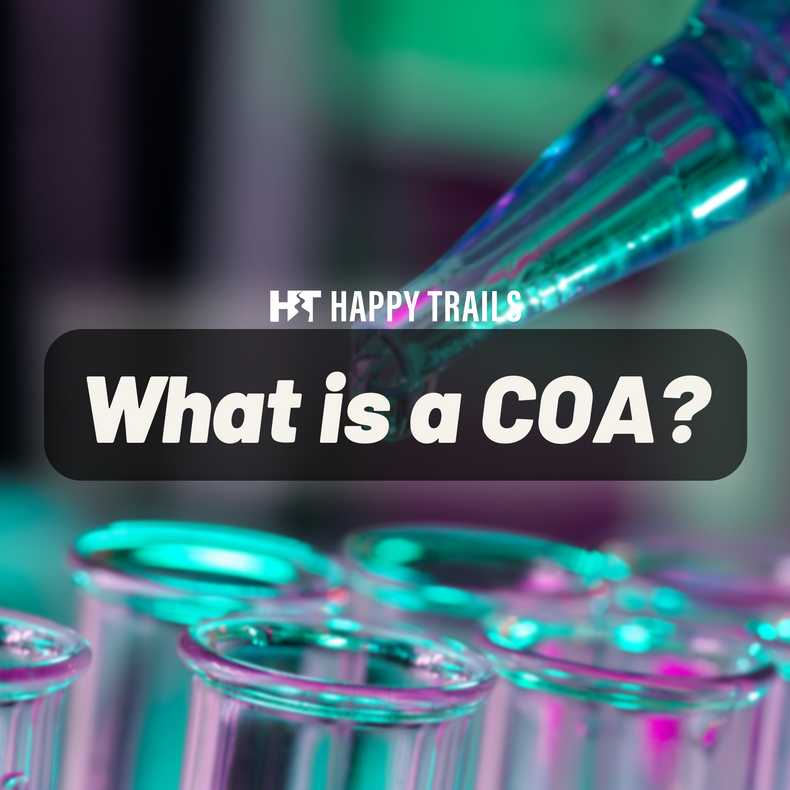What is a Certificate of Analysis?
With the hemp industry in full bloom, many consumers are becoming increasingly aware of what to look for when it comes to choosing a trusted CBD brand. One of the most important factors to consider when choosing any hemp-derived products is if they have a COA, or Certificate of Analysis, for every product. A COA is a document from an accredited laboratory that shows the quantity of various cannabinoids in a product - among other important information.
Manufacturers should send every batch of product they make to a third-party lab for potency and purity testing. This protects both customers & manufacturers and proves that their product does contain what they advertise
Since the CBD industry is still unregulated in many ways, COA’s are an important piece of information to ensure you are receiving not only a quality product, but one that will be safe to consume.
If a brand does not provide lab tests, this is a major red flag. Some companies do not publicly provide lab tests but will still provide one if you contact them. Companies you can trust will proudly display or offer to show you the proof of the quality of their products and what they contain.
What Does a COA Consist Of?
There are usually seven main sections on a COA that tell us important information about the product.
- Cannabinoid Profile: This is the main part of the report, which tells you which cannabinoids are present and in what quantity. It will tell you the exact amount of various cannabinoids such as CBD, THC, CBG, CBC, CBN, CBDV, and raw acids in each dose. From this profile, you’ll be able to determine the potency of each dose.
- Terpene Profile: Terpenes are aromatic compounds found in hemp that have shown to lend their own therapeutic potential to the user. Each strain of hemp has its own unique composition of terpenes. The terpene profile shows you which terpenes are present and in what quantity. This is especially helpful if you understand what each terpene can do for you.
- Heavy Metal Screening: Hemp plants are like a sponge and easily absorb what is in the soil. This test tells us what kind of heavy metals are present in the product and how much. It also tells us what levels are considered to be safe.
- Microbiological Contaminants Screening: Just like food, CBD products are tested for various harmful microbes. Including Salmonella, E.coli, and various yeasts and molds. This ensures the product is shelf stable and protects the health of the consumer. If any of these categories say “FAIL”, the product is not deemed safe and should be avoided.
- Mycotoxin Screening: Mycotoxins are toxins produced by fungi that are harmful to humans. This test screens for these toxins.
- Pesticide Screening: This screening shows if the hemp was grown using organic practices, with or without the use of pesticides. If there is a “PASS” for each compound, you know you are working with a high-quality product that was organically grown and safe to consume.
- Solvent Residue Screening: Some extraction methods use solvents that can be dangerous to consume. This test shows you how much of the solvent is left in your product.
In the unregulated world of CBD, these lab reports give you the tools necessary to find quality CBD products from reputable companies and make an informed decision. When doing your research be sure to ask about the COA!
Happy Trails to the Rescue
At Happy Trails, we understand CBD in depth because CBD is what we work with on a daily basis. We desire to educate; so that as a consumer, you can invest in a product that will work and one you’ll feel really good about purchasing. At the end of your journey, we hope to celebrate healing with you!
Still have questions? Visit our Lab Results Page or reach out to us on facebook, instagram or direct message us here.

